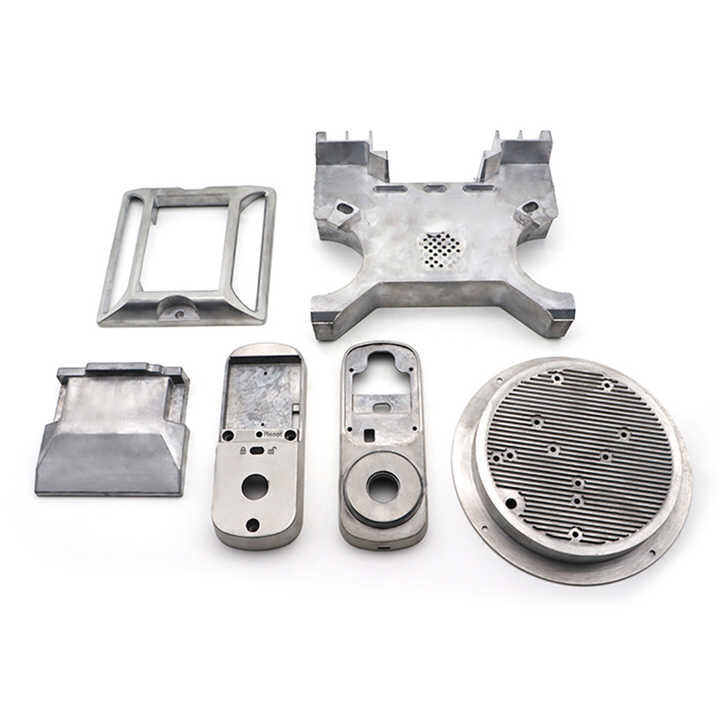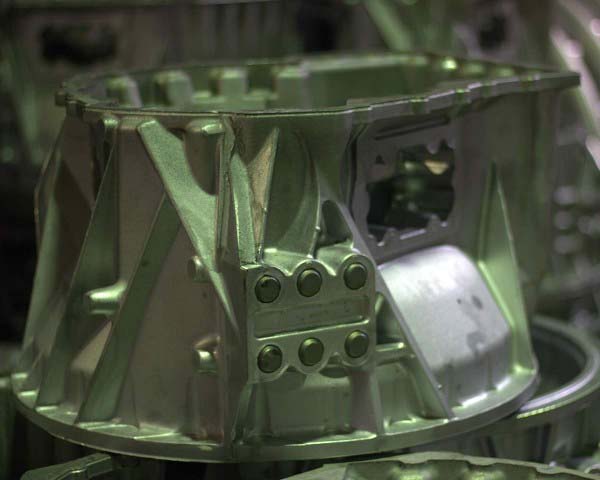How Aluminum Foundry Helps Create Durable Components for Every Industry
Wiki Article
Comprehending Aluminum Casting: A Comprehensive Guide to Its Advantages and Applications
Aluminum casting is a procedure that changes molten aluminum into strong kinds with different methods. This technique provides significant benefits, such as light-weight strength and rust resistance. It discovers applications in countless markets, mirroring its flexibility. Nonetheless, understanding the details of aluminum casting and its ideal techniques can substantially influence the high quality of the last product. Checking out these components discloses real potential of aluminum casting in modern production.The Essentials of Aluminum Casting
Aluminum casting is a manufacturing process that changes liquified aluminum right into strong things with various methods. This process starts with heating aluminum until it reaches its melting point, allowing it to stream into molds. There are a number of methods of aluminum casting, including sand casting, die casting, and financial investment casting, each suitable for different applications based upon design complexity and manufacturing volume.In sand casting, molds are developed making use of sand, giving adaptability for complex shapes. Pass away casting includes compeling liquified aluminum into a steel mold and mildew under high stress, leading to repeatable and precise parts. Financial investment casting, on the various other hand, uses a wax pattern that is coated with ceramic to create detailed elements.
After the aluminum strengthens and cools down, the molds are eliminated, revealing the finished items. This casting procedure is important in numerous sectors, including auto, aerospace, and durable goods, allowing the production of sturdy and lightweight components.
Advantages of Aluminum Casting
One of the vital advantages of aluminum casting depends on its ability to create lightweight yet solid elements. This unique combination makes aluminum a perfect choice for different sectors, consisting of auto, aerospace, and consumer items. The fundamental corrosion resistance of aluminum additionally enhances the longevity of the cast components, lengthening their life expectancy and minimizing the need for upkeep.
In addition, aluminum casting enables for detailed designs and intricate geometries, which can bring about more effective and aesthetically pleasing products. The material's superb thermal and electric conductivity additionally expands its applications, specifically in electronic devices and warmth exchangers.
Aluminum recycling is very reliable, adding to environmental sustainability and minimizing manufacturing costs. Overall, the advantages of aluminum casting position it as a flexible and practical service for makers looking for to enhance performance while reducing weight and resource usage.
Usual Techniques of Aluminum Casting
While different techniques exist for aluminum casting, each approach supplies unique benefits customized to details applications. The most usual methods consist of sand casting, die casting, and investment casting.Sand casting, recognized for its convenience, makes use of sand molds to develop complicated forms and is suitable for both large and tiny production runs. Die casting, on the other hand, utilizes high-pressure shot of liquified aluminum right into steel molds, resulting in smooth surfaces and accurate measurements, making it ideal for automation.
Financial investment casting, frequently referred to as lost-wax casting, includes developing a wax pattern coated with a ceramic covering. aluminum casting. As soon as the wax is disappeared, molten aluminum is poured into the tooth cavity, yielding intricate styles and exceptional surface area finishes
Each of these methods plays an important function in the aluminum casting landscape, offering details benefits that accommodate differing manufacturing requirements and production ranges.
Applications Across Industries
The flexibility of aluminum useful site casting methods enables for a wide variety of applications throughout various sectors. In the auto sector, light-weight aluminum components boost fuel performance and performance, adding to the growing demand for electric vehicles. Aerospace industries make use of aluminum spreadings for their strength-to-weight ratio, making certain safety and security and durability in aircraft production.The building market gain from aluminum casting with architectural aspects and architectural parts that withstand rust and require minimal maintenance. Additionally, customer electronic devices producers employ aluminum spreadings for housings and structures, stabilizing visual appeals with capability.
In the aquatic sector, aluminum spreadings are favored for boats and aquatic devices because of their resistance to saltwater deterioration. The medical field uses aluminum castings in medical instruments and equipment, making sure precision and reliability. On the whole, aluminum casting's adaptability allows it to meet the diverse needs of several fields, making it a crucial manufacturing process.
Ideal Practices for Effective Aluminum Casting
Successful aluminum casting depends on a mix of cautious prep work, exact implementation, and complete quality assurance. Picking top quality aluminum alloys is crucial, as they straight affect the casting's buildings and efficiency. Correct mold and mildew layout is important, ensuring that it accommodates thermal tightening and minimizes issues.Throughout the melting procedure, avoiding and preserving the over here appropriate temperature level contamination are essential to achieving an uniform alloy. Additionally, utilizing reliable pouring techniques can enhance the dental filling of molds, reducing the possibility of air pockets or inclusions.
Post-casting, carrying out thorough examination methods, such as visual analyses and non-destructive testing, guarantees that flaws are determined early. Using rigorous top quality control steps throughout the procedure helps maintain consistency and integrity in the last items. By sticking to these ideal practices, producers can significantly boost the success and efficiency of their aluminum casting operations.
Frequently Asked Concerns
What Safety Actions Should Be Taken During Aluminum Casting?

Exactly How Can Defects in Aluminum Castings Be Decreased?
Defects in aluminum castings can be reduced with mindful mold and mildew style, appropriate temperature level control, making sure tidy steel, using proper putting strategies, and conducting complete check my blog inspections to recognize and address problems before wrapping up the casting process.
What Is the Ecological Impact of Aluminum Casting?
The ecological impact of aluminum casting consists of energy-intensive procedures, greenhouse gas emissions, and source removal concerns. However, developments in reusing and sustainable methods can alleviate these effects, promoting an extra green strategy to aluminum manufacturing.Can Aluminum Casting Be Recycled?
Yes, aluminum casting can be recycled effectively. The recycling procedure calls for significantly much less power contrasted to main aluminum production, making it an ecologically pleasant option that adds to source preservation and reduced carbon exhausts.What Are the Expenses Related To Aluminum Casting Processes?
Prices related to aluminum casting procedures include product expenses, labor, equipment maintenance, energy usage, and mold manufacture. These factors can vary substantially based on manufacturing range, intricacy of layouts, and certain production strategies employed.Aluminum casting is a process that changes liquified aluminum into strong kinds via various methods. Aluminum casting is a production process that changes liquified aluminum right into strong objects through various methods. While numerous techniques exist for aluminum casting, each method provides distinctive benefits customized to specific applications. The ecological impact of aluminum casting consists of energy-intensive procedures, greenhouse gas emissions, and resource removal concerns. Prices linked with aluminum casting procedures include product costs, labor, devices upkeep, power consumption, and mold and mildew construction.
Report this wiki page